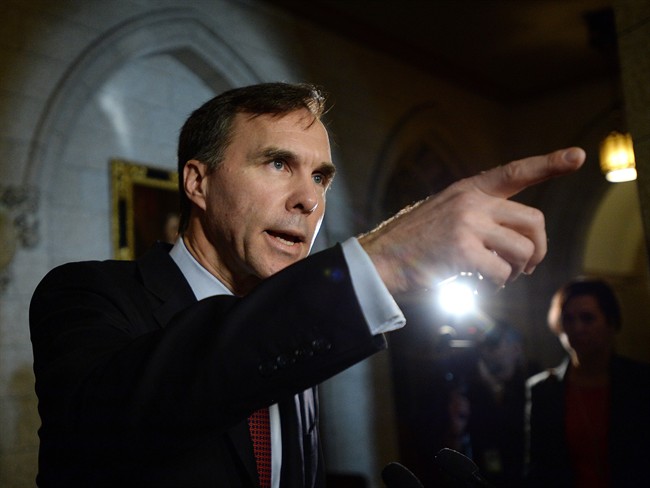OTTAWA – The Liberal government’s vows to help Canada’s indigenous people will be a top priority in the upcoming federal budget, Finance Minister Bill Morneau said Wednesday.

Morneau has launched pre-budget consultations in advance of the Liberal government’s fiscal plan, to be introduced in the coming months.
On Wednesday, he fielded economic questions from students in an online forum with universities across the country.
“Our commitments around helping aboriginal Canadians with their very significant challenges are critically important to us,” Morneau said in response to one question.
“You can be sure that that’ll be high priority in our coming budget.”
He said Canadians gave the Liberals a mandate to follow through on their campaign promises — although he also acknowledged the country’s economic situation has worsened.
READ MORE: Climate change may impact vital roads: First Nations leaders

Get weekly money news
The Liberals made several key vows to indigenous Canadians that were not costed in the party’s platform. They include delivering on all 94 recommendations from the Truth and Reconciliation Commission’s probe of residential schools and ending all boil-water advisories on reserves within five years.
Analysts, however, have warned that Canada is on a shakier fiscal footing than the Liberals had anticipated and that the country could be on track for much deeper shortfalls than the party projected.
Prime Minister Justin Trudeau promised during the campaign to run annual deficits of no more than $10 billion over the next two years while pumping billions into infrastructure projects to stimulate the stagnant economy. He vowed to respect that upper limit for deficits unless the economic situation got “radically worse” but has since downgraded that commitment to a “goal.”
His plan also called for Canada’s books to return to balance in 2019-20.
READ MORE: Government debt set to hit $1.3 trillion in 2016: study
Morneau acknowledged Wednesday that Canada faces weaker economic conditions than it did just a couple of months ago, particularly amid still-falling oil prices and fading global growth.
“So, we find ourselves, unfortunately, with a situation that’s more difficult than expected,” he said in French in response to one question.
Morneau will travel across the country next week to seek input as he draws up his first federal budget.
If the pre-budget questionnaire is any indication of the new government’s priorities, the budget will stress goals the Liberals started highlighting months before the election. Those include enriching the so-called middle class, investing in infrastructure and tackling environmental concerns without hurting the economy.







Comments